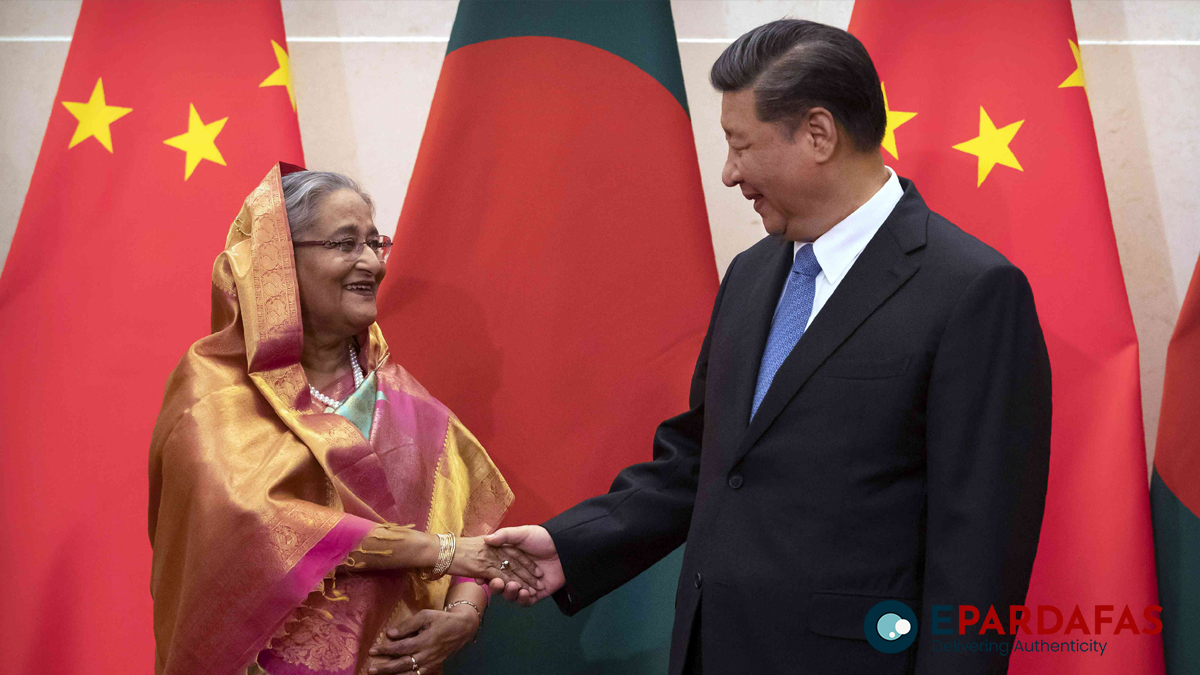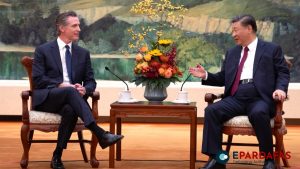
Bangladesh’s Prime Minister Sheikh Hasina Resigns, Casting Uncertainty Over China’s Key Strategic Partnership

China has lost a significant diplomatic ally with the resignation under pressure of Bangladesh’s long-serving Prime Minister Sheikh Hasina. Hasina, who had recently strengthened ties with Beijing by signing 28 bilateral agreements and agreeing to elevate relations to a “comprehensive strategic cooperative partnership,” fled the country last month amid a severe student-led uprising.
Beijing’s official response has been restrained. The Xinhua News Agency quoted the Chinese Foreign Ministry referring to Bangladesh as a “friendly neighbor” and expressing hope for a quick restoration of social stability. However, Chinese social media users have been more vocal, expressing admiration for the Bangladeshi student protesters who, despite a harsh military crackdown that reportedly resulted in dozens of deaths, succeeded in driving Hasina from office.
One Weibo user praised the bravery of the Bangladeshi people: “At a moment when democracy and equality faced serious setbacks, the heroic people of Bangladesh used their lives to turn the tide. The world’s civilizations may be diverse, but they only have one path forward. Best wishes to the Bengalis.”
Other users compared the courage of Bangladeshi protesters with what they perceive as a lack of resistance in China. “They’re much braver compared to the people in China,” one comment noted, with another referencing COVID-19 restrictions as a symbol of Chinese passivity.
Following Hasina’s departure, General Waker-Uz-Zaman, Bangladesh’s Army Chief of Staff, addressed the nation, pledging an investigation into the violent crackdown and ordering restraint from the military and police. This move received praise from some Chinese social media users, who saluted the military’s new approach and the bravery of the Bangladeshi people.
Conversely, some comments criticized the protests as a result of Western ideologies, suggesting that only a strong, centralized rule like that of the Chinese Communist Party could bring stability. “Democracy and freedom accelerate a country’s self-destruction,” argued one user, while others defended democratic values, aligning with socialist principles.
Hasina was Bangladesh’s longest-serving female leader, having been re-elected for a fourth consecutive term in January amid controversy and accusations of election misconduct. The U.S. and Britain had condemned the election results as untrustworthy.
China’s investment in Bangladesh has been substantial. The two countries had planned to increase defense exchanges and expand Chinese involvement in Bangladeshi infrastructure and economic development. Bangladesh, a key recipient of Chinese arms, had received 12% of China’s total arms exports from 2009 to 2023. Additionally, Bangladesh’s participation in China’s Belt and Road Initiative has led to significant infrastructure development, including roads, railways, power and communication grids, seaports, and a surface water treatment plant.
With Hasina’s resignation and the resulting upheaval, China will be closely monitoring the situation in Bangladesh, as the future of their relationship remains uncertain.












Comments